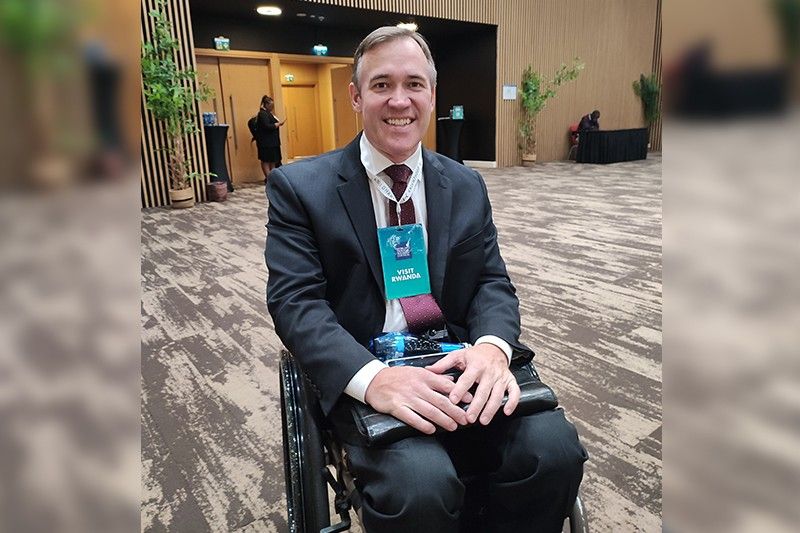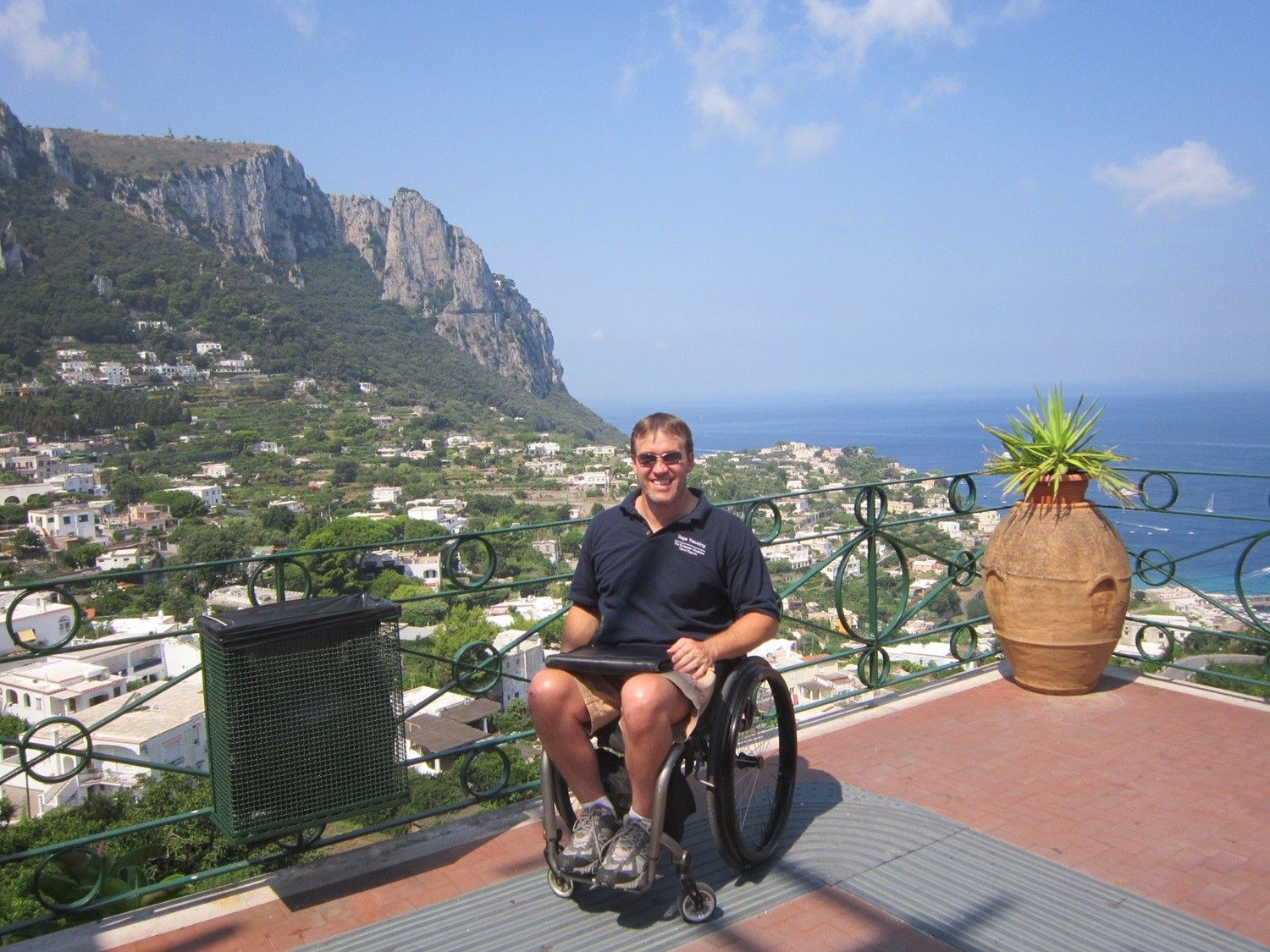Meet John Sage, a PWD who has traveled to 45 countries on his wheelchair

KIGALI, Rwanda — Traveling remains a significant challenge for people globally. However, one individual is determined to enhance global travel accessibility, particularly for persons with disabilities.
Meet Texas-native John Sage, founder and CEO of Accessible Travel Solutions.
Despite being bound by two wheels, that has not stopped him from exploring 45+ countries and over 200 cities in Europe.
His objective? To bring traveling closer and easier to people disenfranchised within the tourism sector due to lack of inclusivity.
“Accessible Travel Solutions is our accessible [business-to-business] tour operator. So we provide accessible tours and vacation packages for people with disabilities,” he said to Philstar.com last Thursday at the sidelines of the World Travel & Tourism Council (WTTC) Global Summit 2023.
Sage observed that there is no one-size fits all approach to making traveling inclusive.
For example, while the Texas-native finds flat and drivable cities like Houston to be accessible, people with other disability types might not feel the same way.
“So for me as a wheelchair user, that is very accessible,” he said.
“But for someone who’s blind, that would be very difficult because most of the businesses and attractions are not connected very easily by public transportation. Probably the most difficult tourist destination I've been to is Cinque Terre in Italy because those towns are literally perched on the sides of hills. So it is very steep no matter where you go."

A human rights issue for PWDs
Data from the World Health Organization (WHO) says that around 1.3 billion people worldwide experience “significant disability,” which poses considerable challenges to their active participation in tourism.
Meanwhile, Article 30 of the Convention on the Rights of Persons with Disabilities requires state parties to “take all appropriate measures to ensure" that PWDs could enjoy access to places and tourism services.
For Sage, who also heads Sage Traveling, making things accessible doesn’t end with making facilities inclusive. It also involves:
-
accessible customer service (processes, policies and training)
-
accessibility documentation
“The biggest gap for the industry as a whole is accessibility documentation. [It’s] essentially to gain the trust of disabled travelers,” he said.
“And to get their booking, you have to give very, very detailed information that includes measurements, photographs and things like that. That’s the biggest gap in the whole industry.”
A National Disability Prevelance Survey published by the Philippine Statistics Authority in 2019 showed that around 12% of Filipino aged 15 and above experienced "severe disability."
On the other hand, 47% of Filipino PWDs experienced "moderate disability" while around 23% experienced "mild disability." Only one-fifth (19%) has yet to experience disabilities.
Despite policies and laws that prioritize the needs of commuting individuals with disabilities, such as ramps, queue priority, and discounted fares, many argue that these measures are insufficient.
The group is currently working with governments and destinations to further improve their system. This includes making assessments in hotels, attractions, restaurants, ground transportation and attractions.
Recommendations for improvement are made as Accessible Travel Solutions generates the needed "accessibility documentation." It is then made available in the destination website for the public to freely access it.
First time traveling as a PWD? Research is the key
As of now, SageTraveling.com and Accessible Travel Solutions mainly serve European destinations.
But as the world continues to open up after global COVID-19 restrictions, the companies have already received interest in different regional operators in South America, Australia, Asia and Africa.
This, they say, could assist not only disabled people but also businesses to improve.
For now, Sage highly recommends that fellow PWDs do enough research especially if it is their first time dipping their toes into a foreign land alone.
"Do the research beforehand. Either do it yourself or hire somebody to help you,” he advised.
“Also, plan [in] advance, book [in] advance. A lot of hotels in the most desirable locations in these cities only have two accessible rooms, so there’s a lot of competition for them.”
For more accessibility tips especially in the Czech Republic, France, Germany, Greece, Italy, Poland, Portugal and Spain, visit this link.



















